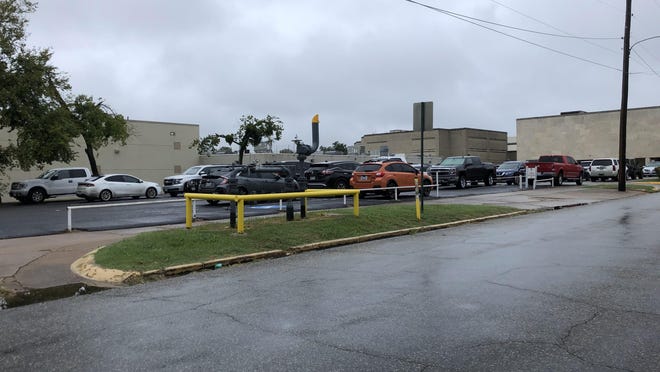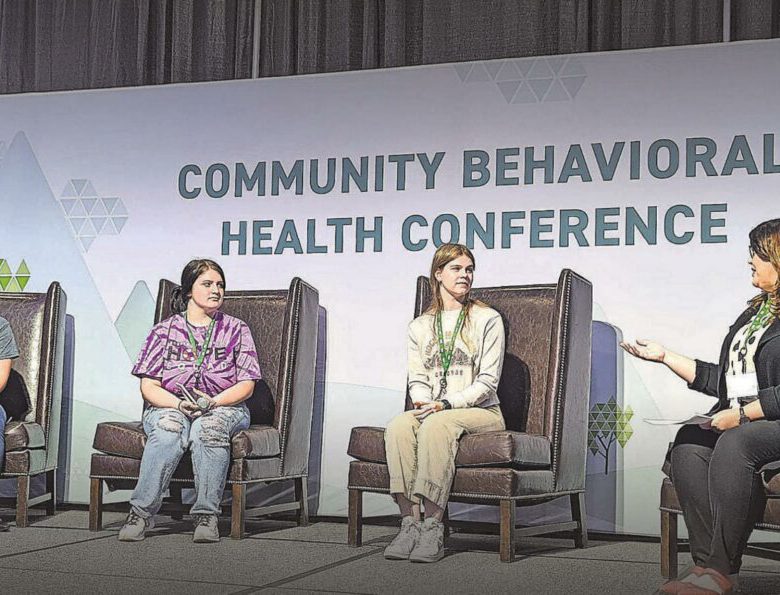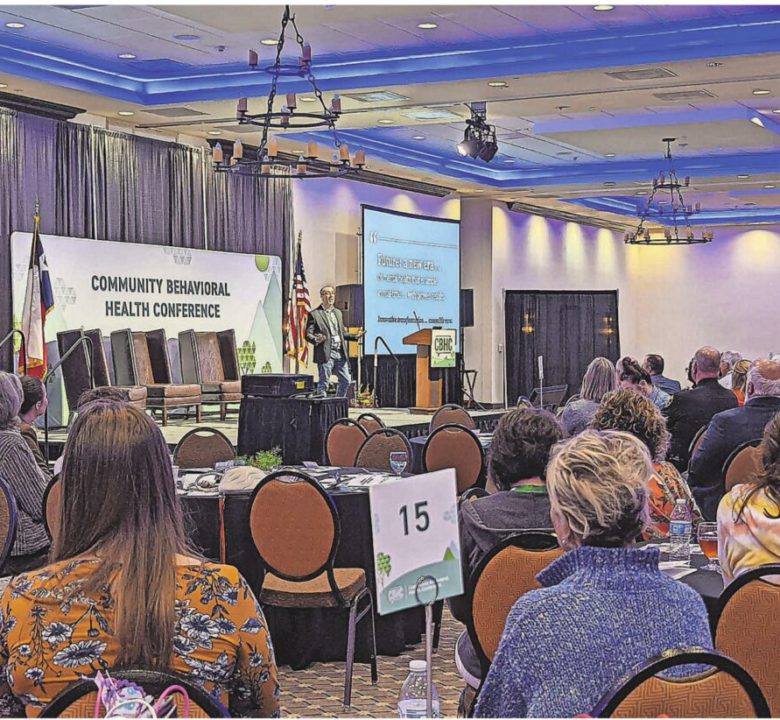- If you believe you or someone you know is in imminent danger, Call 9-1-1 immediately. | Take a mental health screening
Mental health, county jail: County works to coordinate services

TBHLT Announces Selection of Inaugural Executive Director
January 7, 2022
Taking the stage
April 29, 2022Published by Jerrie Whiteley, Herald Democrat
The biggest problem facing the Grayson County Jail, and other jails in the state is those who do need the kind of mental health care they can’t get in jail are waiting for a bed in a state facility.
In Grayson County, the wait to get one of those beds is about a year. In bigger counties, it can be as much as three years.
The job of the newly hired mental health coordinator at the jail is to help find better options here locally. That means the coordinator meets with folks at Texoma Community Center to those at Adult Probation and the District Attorney’s Office to flag cases that might need to be examined with the mental health of the inmate in mind.
“Right now we have mediation management,” newly hired coordinator Elizabeth Groves said. “We have a prescriber who comes in one day a week through TCC. They meet with as many people as they can, it is usually about ten. We are going to increase that to two days a week, but the wait list to see a prescriber is still long.”
They have whittled that down to four weeks, but for many, that is still too long.
A life-long passion of working with individuals living with disabilities is part of what led Groves to Grayson County..
She started working with students with learning disabilities when she was just in high school. Though law school once beaconed her, Groves continued to work with those with disabilities throughout college and beyond. Born in Kansas City, Missouri, she would spend most of her life in the state before moving to Texas about four years ago with her three daughters who are now ten, six and five-years old.
By the time she reached Texas, she had been a respite care provider and a services coordinator for those who either had learning disabilities or mental illnesses.
The job she applied for with Grayson County is supported by a grant from the judicial commission on mental health and involves jail diversion.
“It’s a challenging job,” she said. “It’s a lot different from anything I have ever worked. There is just a tremendous amount of support from the judges that I work for.”

The support she receives extends beyond the courtrooms to the District Attorney’s Office, Adult Probation Office and the County Judge’s Office.
“Everyone is willing to work together toward solutions,” she said.
One of the things they need solutions for is the problem how to best serve those who have mental illnesses and end up in the criminal justice system.
Groves said the problem is not as prevalent in Grayson County as she worried it would be when she first took the job.Your stories live here.Fuel your hometown passion and plug into the stories that define it.Create Account
“I actually thought it would be much worse,” she said. “Our jail holds 391 people. They are usually at capacity. I thought maybe we’d see maybe 25 percent or so with significant persistent mental illness or substance use or (intellectual and developmental disabilities). We’re just not (seeing that many). In the four months that I have worked here, I would that percentage is closer to 3-5 percent.”
She quickly added that she doesn’t mean to say that there aren’t more people who come into the jail who may have been diagnosed as depressed and are prescribed medication to help with mental illness, but jail staff does not serve a large number of people who are not able to function without the assistance of others.

“Coming from Collin County, I was the jail diversion lead for their local mental health authority and it was kinda the same statistic there,” she said.
Prior to the hiring of a GC coordinator, Grayson County Jail Captain Sarah Bigham contributed greatly to helping aid and serve those with mental illnesses that were housed at the jail. She now works with Groves is helping to ease the problem at the jail.
“She helps identify inmates with mental health issues more quickly than before her position existed,” she said. “Usually within the first week someone is here, she helps bring them to the court’s attention.”
The jail’s mental health coordinator also spends a lot of time talking to people in other counties about how they are handling problems and trying to see what will work here in Grayson County. And Groves is encouraged by the progress that they have been able to make in this county.
“I feel like we’ve made a lot of progress as far as establishing better communication,” she said. “Before it maybe like a text message from one entity along the intercept to another entity but maybe the courts weren’t looped in or maybe adult supervision wasn’t looped in. Now we all talk.”
There is an email chain where we might identify someone in the jail as soon as they get arrested who presents as having substance abuse disorders or mental illness symptomology is noted.
“So they have a ZOOM hearing where everyone can get together to discuss that person’s situation,” Groves said. “They reach out to the local mental health provider to see if that person had been treated there before and if so, what kind of medication they might be on and need to get on in the jail.”
Then, they work with the district attorneys to move the case along quickly so that person can be tracked out of the system if possible.
Those kinds of changes, she said, are the kind that are going to hopefully help the county see fewer people who have mentally illnesses on those long waiting lists to get help from the state before they can be processed out of the system.
Originally posted on heralddemocrat.com at https://www.heralddemocrat.com/story/news/2022/03/11/mental-health-county-jail-county-works-coordinate-services/9418218002/




